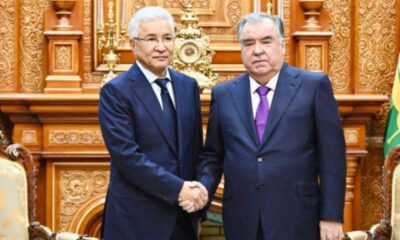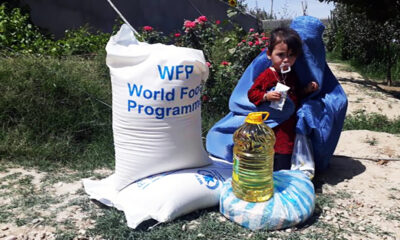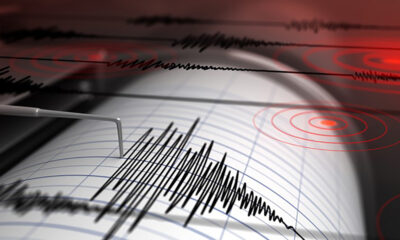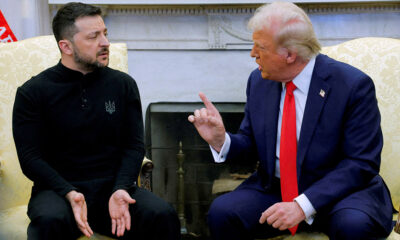Science & Technology
Space telescope uncovers massive galaxies near cosmic dawn
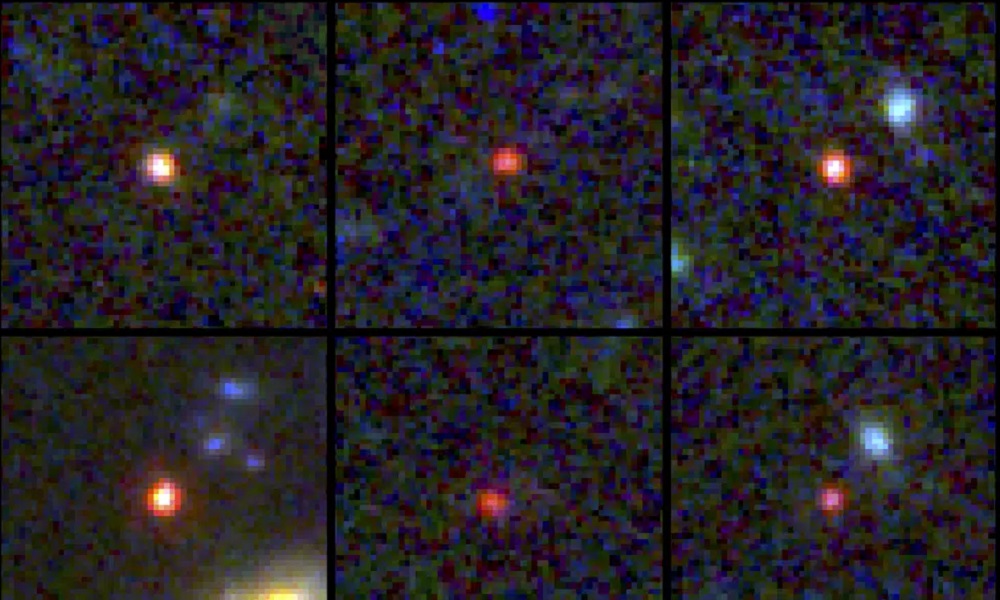
Astronomers have discovered what appear to be massive galaxies dating back to within 600 million years of the Big Bang, suggesting the early universe may have had a stellar fast-track that produced these “monsters,” AP reported.
While the new James Webb Space Telescope has spotted even older galaxies, dating to within a mere 300 million years of the beginning of the universe, it’s the size and maturity of these six apparent mega-galaxies that stun scientists, who reported their findings Wednesday.
Lead researcher Ivo Labbe of Australia’s Swinburne University of Technology and his team expected to find little baby galaxies this close to the dawn of the universe — not these whoppers.
“While most galaxies in this era are still small and only gradually growing larger over time,” he said in an email, “there are a few monsters that fast-track to maturity. Why this is the case or how this would work is unknown.”
Each of the six objects looks to weigh billions of times more than our sun. In one of them, the total weight of all its stars may be as much as 100 billion times greater than our sun, according to the scientists, who published their findings in the journal Nature.
Yet these galaxies are believed to be extremely compact, squeezing in as many stars as our own Milky Way, but in a relatively tiny slice of space, according to Labbe.
Labbe said he and his team didn’t think the results were real at first — that there couldn’t be galaxies as mature as the Milky Way so early in time — and they still need to be confirmed. The objects appeared so big and bright that some members of the team thought they had made a mistake.
“We were mind-blown, kind of incredulous,” Labbe said.
The Pennsylvania State University’s Joel Leja, who took part in the study, calls them “universe breakers.”
“The revelation that massive galaxy formation began extremely early in the history of the universe upends what many of us had thought was settled science,” Leja said in a statement. “It turns out we found something so unexpected it actually creates problems for science. It calls the whole picture of early galaxy formation into question.”
These galaxy observations were among the first data set that came from the $10 billion Webb telescope, launched just over a year ago. NASA and the European Space Agency’s Webb is considered the successor to the Hubble Space Telescope, coming up on the 33rd anniversary of its launch.
Unlike Hubble, the bigger and more powerful Webb can peer through clouds of dust with its infrared vision and discover galaxies previously unseen. Scientists hope to eventually observe the first stars and galaxies formed following the creation of the universe 13.8 billion years ago.
The researchers still are awaiting official confirmation through sensitive spectroscopy, careful to call these candidate massive galaxies for now. Leja said it’s possible that a few of the objects might not be galaxies, but obscured supermassive black holes.
While some may prove to be smaller, “odds are good at least some of them will turn out to be” galactic giants, Labbe said. “The next year will tell us.”
One early lesson from Webb is “to let go of your expectations and be ready to be surprised,” he said.
Science & Technology
Meta releases new AI model Llama 4
Meta said in a statement that the Llama 4 Scout and Llama 4 Maverick are its “most advanced models yet” and “the best in their class for multimodality.”

Meta Platforms on Saturday released the latest version of its large language model (LLM) Llama, called the Llama 4 Scout and Llama 4 Maverick.
Meta said Llama is a multimodal AI system. Multimodal systems are capable of processing and integrating various types of data including text, video, images and audio, and can convert content across these formats.
Meta said in a statement that the Llama 4 Scout and Llama 4 Maverick are its “most advanced models yet” and “the best in their class for multimodality.”
Meta added that Llama 4 Maverick and Llama 4 Scout will be open source software. It also said it was previewing Llama 4 Behemoth, which it called “one of the smartest LLMs in the world and our most powerful yet to serve as a teacher for our new models.”
Big technology firms have been investing aggressively in artificial intelligence (AI) infrastructure following the success of OpenAI’s ChatGPT, which altered the tech landscape and drove investment into machine learning.
The Information reported on Friday that Meta had delayed the launch of its LLM’s latest version because during development, Llama 4 did not meet Meta’s expectations on technical benchmarks, particularly in reasoning and math tasks.
The company was also concerned that Llama 4 was less capable than OpenAI’s models in conducting humanlike voice conversations, the report added.
Meta plans to spend as much as $65 billion this year to expand its AI infrastructure, amid investor pressure on big tech firms to show returns on their investments.
Science & Technology
‘Massive cyberattack’ brings down Elon Musk’s X
Digital Trends reported Tuesday that there are reports suggesting X is still having issues
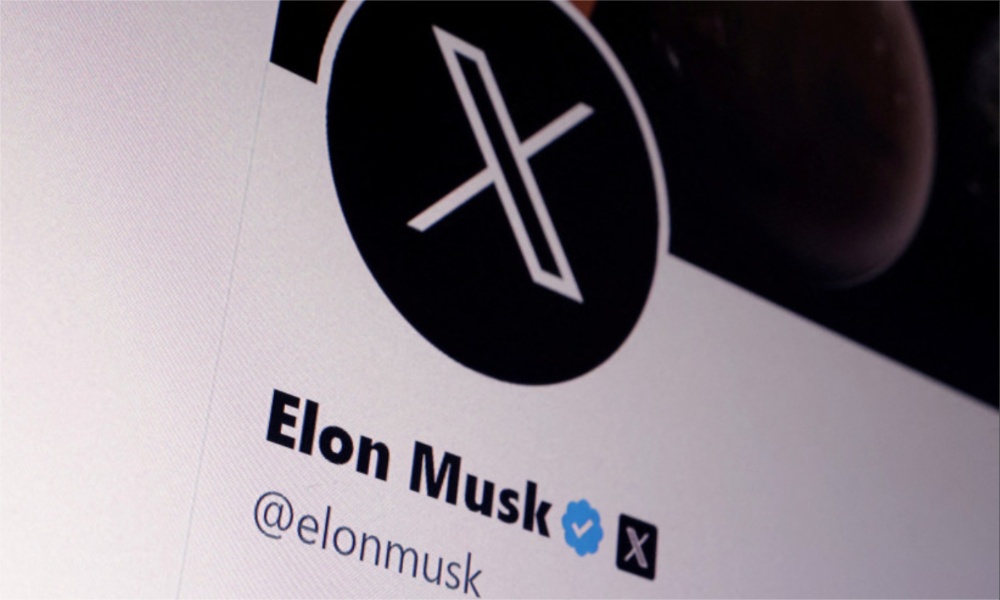
Social media platform X went down intermittently on Monday, with owner Elon Musk blaming an unusually powerful cyberattack.
“We get attacked every day, but this was done with a lot of resources. Either a large, coordinated group and/or a country is involved,” Musk said in a post on X on Monday.
He did not clarify exactly what he meant by “a lot of resources” and his comments drew skepticism from cybersecurity specialists, who pointed out that attacks of this nature — called denials of service — have repeatedly been executed by small groups or individuals.
X faced intermittent outages, according to Downdetector, Reuters reported.
Digital Trends meanwhile reported Tuesday that there are reports suggesting X is still having issues.
Internet industry experts have said X was hit by several waves of ‘denial of service’ throughout Monday.
Musk said in an interview with Fox Business Network’s Larry Kudlow the cyberattack came from IP addresses originating in the Ukraine area.
An industry source told Reuters he disputed Musk’s account, saying that large chunks of the rogue traffic bombarding X could be traced back to IP addresses in the United States, Vietnam, Brazil and other countries, and that the amount of rogue traffic coming directly from Ukraine was “insignificant.”
In any case, denial of service attacks are notoriously hard to trace back to their authors and the IP addresses involved rarely provide any meaningful insight into who was behind them, Reuters reported.
Musk has joined U.S. President Donald Trump, whom he serves as an adviser, in criticizing Ukraine’s continued efforts to fight off a Russian invasion.
Musk said on Sunday that Ukraine’s front line “would collapse” without his Starlink satellite communications service, though he said he would not cut off Ukraine’s access to it.
Science & Technology
NASA says ‘city killer’ asteroid has a 3.1 % chance of striking Earth in 2032
Despite the rising odds, experts say there is no need for alarm
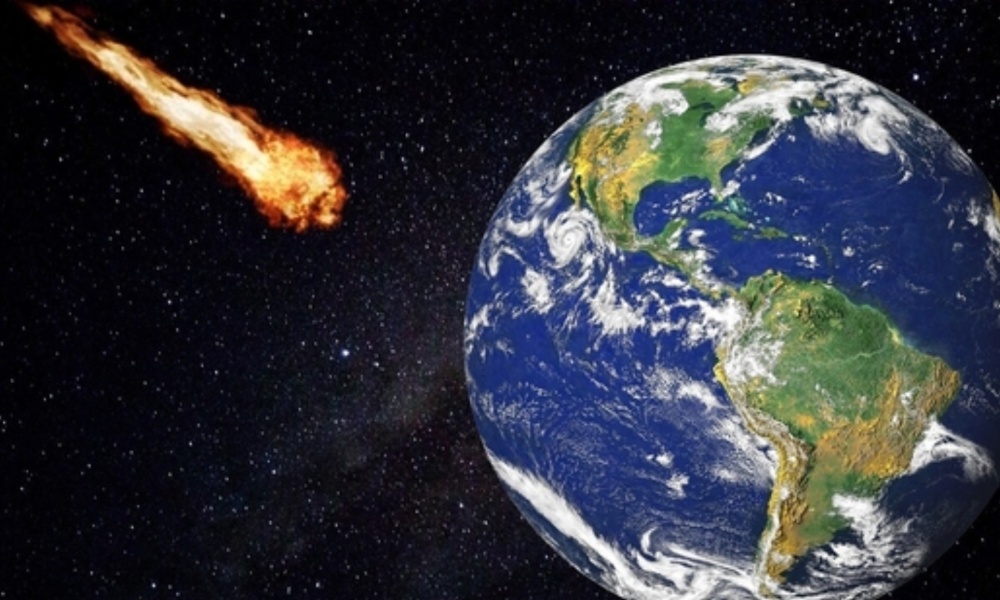
An asteroid that could level a city now has a 3.1-percent chance of striking Earth in 2032, according to NASA data released Tuesday — making it the most threatening space rock ever recorded by modern forecasting.
Despite the rising odds, experts say there is no need for alarm. The global astronomical community is closely monitoring the situation and the James Webb Space Telescope is set to fix its gaze on the object, known as 2024 YR4, next month.
“I’m not panicking,” Bruce Betts, chief scientist for the nonprofit Planetary Society told AFP.
“Naturally when you see the percentages go up, it doesn’t make you feel warm and fuzzy and good,” he added, but explained that as astronomers gather more data, the probability will likely edge up before rapidly dropping to zero.
2024 YR4 was first detected on December 27 last year by the El Sauce Observatory in Chile.
Astronomers estimate its size to be between 130 and 300 feet (40–90 meters) wide, based on its brightness. Analysis of its light signatures suggests it has a fairly typical composition, rather than being a rare metal-rich asteroid.
The International Asteroid Warning Network (IAWN), a worldwide planetary defense collaboration, issued a warning memo on January 29 after the impact probability had crossed one percent. Since then, the figure has fluctuated but continues to trend upward.
NASA’s latest calculations estimate the impact probability at 3.1 percent, up from 1.6 percent last month, with a potential Earth impact date of December 22, 2032.
Richard Moissl, head of the European Space Agency’s planetary defense office, which puts the risk slightly lower at 2.8 percent told AFP that this “is not a crisis at this point in time. This is not the dinosaur killer. This is not the planet killer. This is at most dangerous for a city.”
If the risk rises over 10 percent, IAWN would issue a formal warning, leading to a “recommendation for all UN members who have territories in potentially threatened areas to start terrestrial preparedness,” explained Moissl.
Unlike the six-mile-wide (10-kilometer-wide) asteroid that wiped out the dinosaurs 66 million years ago, 2024 YR4 is classified as a “city killer” — not a global catastrophe, but still capable of causing significant destruction.
Its potential devastation comes less from its size and more from its velocity, which could be nearly 40,000 miles per hour if it hits.
If it enters Earth’s atmosphere, the most likely scenario is an airburst, meaning it would explode midair with a force of approximately eight megatons of TNT — more than 500 times the power of the Hiroshima bomb.
But an impact crater cannot be ruled out if the size is closer to the higher end of estimates, said Betts.
The potential impact corridor spans the eastern Pacific, northern South America, the Atlantic, Africa, the Arabian Peninsula, and South Asia — though Moissl emphasized it is far too early for people to consider drastic decisions like relocation.
The good news: there’s ample time to act.
NASA’s 2022 DART mission proved that spacecraft can successfully alter an asteroid’s path, and scientists have theorized other methods, such as using lasers to create thrust by vaporizing part of the surface, pulling it off course with a spacecraft’s gravity, or even using nuclear explosions as a last resort. — Agence France-Presse
-

 Latest News5 days ago
Latest News5 days agoItaly to welcome 700 Afghan refugees for resettlement
-

 Sport5 days ago
Sport5 days agoAfghanistan’s national futsal team heads to Morocco
-

 Sport4 days ago
Sport4 days agoAfghanistan win U-19 cricket series despite rain-impacted loss to Nepal
-
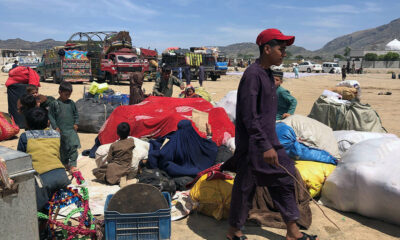
 Latest News4 days ago
Latest News4 days agoPakistan expels thousands of Afghan nationals in fresh drive, says UNHCR
-
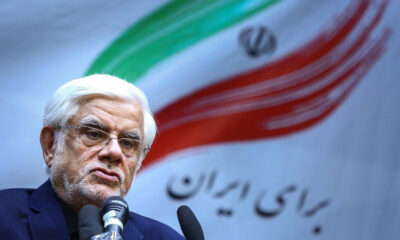
 Latest News4 days ago
Latest News4 days agoIran’s Vice President advocates stronger ties with neighbors, especially Afghanistan
-
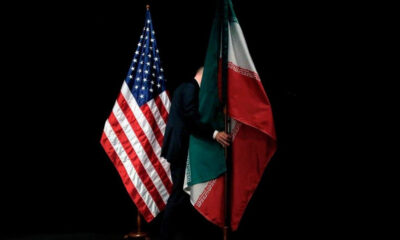
 Regional4 days ago
Regional4 days agoUS energy secretary sees tighter sanctions on Iran without deal
-
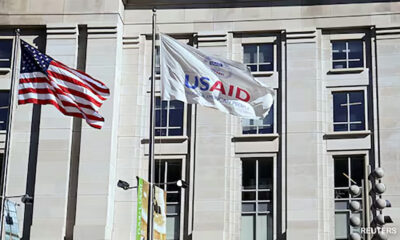
 Latest News4 days ago
Latest News4 days agoTrump administration moves to restore some terminated foreign aid programs, sources say
-
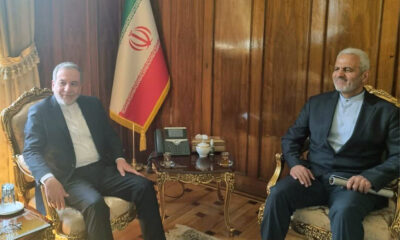
 Latest News4 days ago
Latest News4 days agoBigdeli updates Iran’s FM on current status of bilateral relations with Kabul






